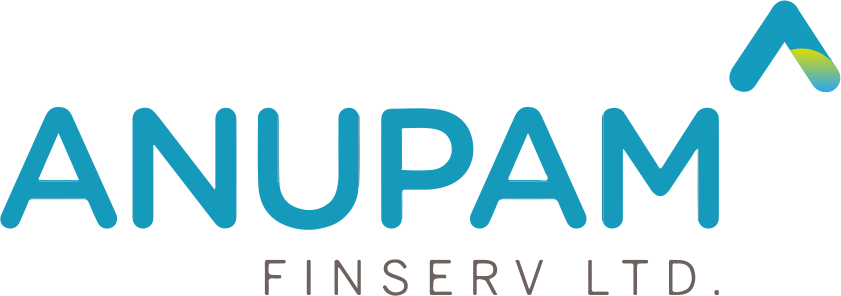What is Anchor Financing?
Running a business in today’s fast-paced economy requires more than just passion—it demands access to flexible funding that helps manage cash flow, grow operations, and invest in new opportunities. For small and medium enterprises (SMEs) and MSMEs, choosing the right type of business loan can make or break their growth journey.
Two prominent financing options available today are Anchor Financing and Traditional Business Loans. Each comes with its own set of benefits and trade-offs. But how do you know which one suits your business needs best?
In this blog by Anupam Finserv, we break down the differences, pros, and cons of Anchor Financing vs. Traditional Business Loans, and help you decide which financing method is better for your business.
Anchor Financing is a modern, supply-chain-based lending solution. In this model, an anchor company—usually a large, well-established corporate—is at the center of the transaction. Suppliers, dealers, and vendors associated with the anchor company can access short-term working capital based on the credibility and financial health of the anchor.
How it Works:
For example, if your business supplies raw materials to a large retail chain (the anchor), lenders like Anupam Finserv may provide funding to you based on the anchor’s repayment cycle and reputation, rather than just your standalone credit score.
This makes anchor-based financing a low-risk, high-efficiency credit solution, especially for small businesses that have stable corporate relationships.
What are Traditional Business Loans?

Traditional Business Loans are standard term loans provided by banks, NBFCs, and other financial institutions. These loans are typically used for business expansion, purchasing equipment, or meeting working capital needs. The borrower must meet eligibility criteria such as CIBIL score, financial documents, business vintage, and turnover.
Traditional loans can be secured or unsecured, and usually have a fixed interest rate and repayment tenure.
Common Types Include:
- Term Loans
- Working Capital Loans
- Loan Against Property
- Equipment Financing
- MSME Loans
Pros and Cons of Anchor Financing

✅ Pros:
1. Versatile Use Cases
Funds can be used for anything from buying inventory to investing in infrastructure.
2. Long-Term Tenure Options
These loans offer longer repayment cycles—ideal for capital expenditure or business growth.
3. Available to Standalone Businesses
You don’t need an anchor partner. Your business’s performance, credit score, and financials are what matter.
4. Diverse Loan Products
From MSME loans, equipment financing, to loan against property, there’s a wide range of offerings to suit different needs.
❌ Cons:
1. Lengthy Documentation Process
Expect paperwork like bank statements, ITRs, GST returns, and financial projections.
2. Credit Score Dependency
A low CIBIL score can reduce your chances of approval or increase your interest rate.
3. Collateral May Be Required
Secured loans often require real estate, machinery, or other assets as collateral, which might not be feasible for all MSMEs.
Which Is Better for Your Business?
There is no one-size-fits-all answer, but here’s how you can decide:
Choose Anchor Financing if:
- You are a supplier, vendor, or distributor to a large corporate.
- Your cash flow depends heavily on invoice payments from anchors.
- You need short-term working capital without risking heavy collateral.
- You are looking for fast disbursals and minimal paperwork.
Choose Traditional Business Loans if:
- You want flexibility in how you use your funds.
- You need longer tenures for expansion, marketing, or asset purchase.
- Your business has a good track record and a healthy credit score.
- You need larger loan amounts than what anchor financing typically offers.
At Anupam Finserv, we help you assess your financial needs and guide you towards the best solution—whether it’s a collateral-free MSME loan, a business expansion loan, or a custom anchor-based financing solution.

Conclusion
In today’s competitive business environment, timely access to credit can define your company’s success. While Anchor Financing offers a modern, relationship-based approach suitable for supply-chain partners, Traditional Business Loans provide versatility and are ideal for standalone SMEs and growth-focused entrepreneurs.
Anupam Finserv, a trusted NBFC in India, offers both traditional loans and innovative credit solutions tailored for MSMEs, startups, and growing businesses. Whether you need to solve cash flow problems or take your business to the next level, we’re here to support your vision with fast, flexible, and transparent financing.
FAQs
1. What is the interest rate for Anchor Financing?
Anchor Financing interest rates are typically lower than unsecured loans and vary based on the anchor company’s profile and repayment track record. At Anupam Finserv, we offer competitive rates to eligible vendors.
2. Can I apply for Anchor Financing if I am a freelancer or service provider?
Anchor Financing is usually available to registered vendors, suppliers, and service providers tied to anchor corporates. Freelancers may be eligible under certain conditions—contact us to learn more.
3. What documents are required for Traditional Business Loans?
Typically, you’ll need:
- Business registration documents
- Bank statements
- GST returns
- Income Tax Returns (ITRs)
- Financial statements
4. Which loan is faster to get approved: Anchor or Traditional?
Anchor Financing is generally faster since it leverages the anchor’s credibility. Traditional loans may take longer due to detailed credit assessment and documentation.
5. Does Anupam Finserv offer unsecured business loans?
Yes! We offer unsecured MSME loans, working capital loans, and personal business loans tailored for SMEs and entrepreneurs.
6. What is the maximum loan amount I can get?
It depends on the type of loan. For traditional business loans, it could range from ₹1 lakh to ₹1 crore. Anchor financing limits depend on your invoice volume and anchor terms.


Add a Comment